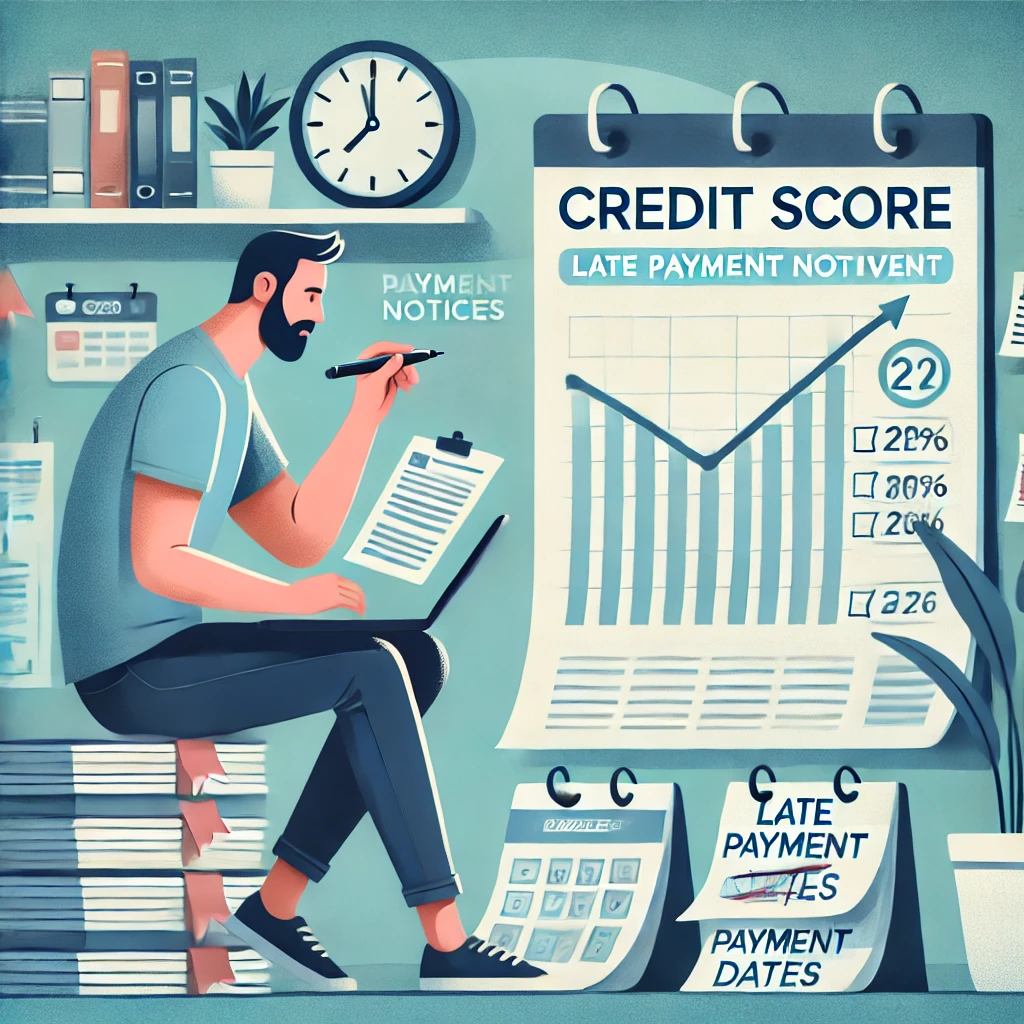
Your credit score is one of the most critical factors in your financial life. It affects your ability to get a loan, rent an apartment, and even sometimes land a job. A history of late payments can significantly damage your credit score, making it harder to achieve your financial goals. However, it’s important to remember that it’s never too late to improve your credit score. By taking consistent, proactive steps, you can rebuild your credit and secure a better financial future. This article will guide you through practical strategies to improve your credit score, even if you have a history of late payments.
Understanding the Impact of Late Payments on Your Credit Score
Late payments are one of the most significant factors that can negatively affect your credit score. Payment history accounts for about 35% of your FICO score, making it the most important factor. When you miss a payment, it’s reported to the credit bureaus and stays on your credit report for up to seven years. The more recent the late payment, the more it will impact your score. However, as time passes and you establish a positive payment history, the effect of the late payment will diminish.
Steps to Improve Your Credit Score After Late Payments
1. Review Your Credit Report
The first step in improving your credit score is to obtain a copy of your credit report and review it thoroughly. You are entitled to a free credit report from each of the three major credit bureaus (Equifax, Experian, and TransUnion) once a year through AnnualCreditReport.com. Check for any errors, such as incorrect late payments or accounts that don’t belong to you. If you find any inaccuracies, dispute them with the credit bureau to have them corrected.
2. Catch Up on Overdue Payments
If you have any outstanding late payments, catching up as soon as possible is crucial. The longer a payment is overdue, the more it will negatively impact your credit score. Contact your creditors to make arrangements to bring your accounts current. Some creditors may be willing to work with you to set up a payment plan or temporarily lower your interest rates.
3. Set Up Payment Reminders
One of the most effective ways to prevent future late payments is to set up payment reminders. Most banks and credit card companies offer this service, which can be delivered via email or text message. You can also use calendar alerts on your phone or computer to remind you of upcoming due dates. Automatic payments are another excellent option to ensure you never miss a payment.
4. Consider Debt Consolidation
If you have multiple accounts with high-interest rates and balances, consolidating your debt may help you manage your payments better. Debt consolidation involves taking out a single loan to pay off your existing debts, leaving you with just one monthly payment. This can simplify your finances and reduce the risk of missing payments. Additionally, if you qualify for a lower interest rate on the consolidation loan, you can save money over time.
5. Negotiate with Creditors
If your late payments were due to financial hardship, such as job loss or medical issues, consider contacting your creditors to explain the situation. In some cases, they may be willing to remove the late payment from your credit report as a goodwill adjustment, especially if you have a history of making on-time payments before the hardship. This is more likely to be successful if you are polite, persistent, and have a legitimate reason for your request.
6. Focus on Reducing Your Credit Utilization Ratio
Your credit utilization ratio is the amount of credit you’re using compared to your total available credit. This ratio accounts for about 30% of your credit score. A high credit utilization ratio can indicate that you’re overextended and may have difficulty paying your bills on time. To improve your credit score, aim to keep your credit utilization below 30%. You can do this by paying down your balances, requesting a credit limit increase, or both.
7. Start Building Positive Credit History
The best way to improve your credit score after late payments is to start building positive credit history. This involves making all your payments on time going forward, keeping your credit utilization low, and avoiding opening too many new accounts in a short period. Over time, as you demonstrate responsible credit behavior, your score will improve.
8. Consider Secured Credit Cards or Credit Builder Loans
If your credit score has been severely impacted by late payments, it may be challenging to qualify for traditional credit products. In this case, you might consider a secured credit card or a credit builder loan. A secured credit card requires a cash deposit, which serves as your credit limit. A credit builder loan involves borrowing a small amount of money that you repay over time, with the payments reported to the credit bureaus. Both options can help you rebuild your credit.
9. Be Patient and Persistent
Improving your credit score after a history of late payments won’t happen overnight. It requires patience, persistence, and consistent effort. Focus on making positive financial decisions, and over time, your score will improve. Remember that even small improvements in your credit score can lead to better interest rates and financial opportunities.
A history of late payments can be a significant obstacle to achieving a good credit score, but it’s not insurmountable. By taking the steps outlined in this article—reviewing your credit report, catching up on overdue payments, setting up payment reminders, consolidating debt, negotiating with creditors, reducing your credit utilization, and building positive credit history—you can improve your credit score over time. With patience and determination, you can overcome the impact of late payments and secure a brighter financial future.
